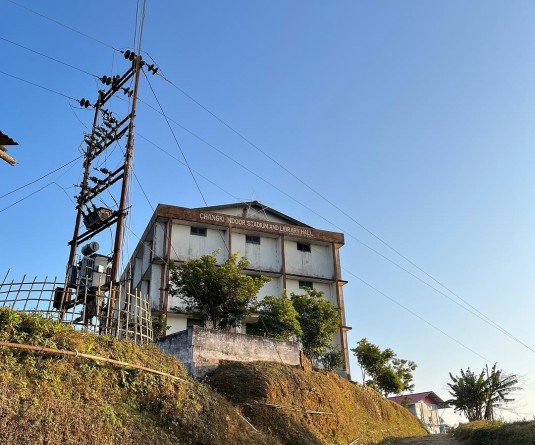
“Earth provides enough to satisfy every man’s need, but not every man’s greed” – M.K. Gandhi
Wokha, April 19 (MExN): Wokha District Forest Officer, Ketusielie Angami, feels that the term ‘Biodiversity Conservation’ has to become part of Naga tradition with its message passed on to every generation to reach as many people as possible. While traditions and age old practices, he observes, still play an important role in our daily lives, “all are not beneficial and we should question if a certain practice is detrimental to the society in general and the ecosystem in particular.”
Traditional community fishing and its effects, vis-à-vis ecological conservation, need to be appraised with all seriousness, notes Angami in a recent article. Community fishing, he explains, is an indigenous fishing method that is usually practiced by involving the whole community of a village, sometimes including the neighboring villages, who come together to fish in a particular stretch of a river. It is normally done by poisoning the river stretches which are usually potential grounds for feeding and breeding of fishes.
“This cruel and unethical fishing method leaves all the aquatic fauna in the river dead,” writes Angami. Practically, he informs, this activity or ritual is performed just before the onset of monsoon when most fish species are gravid and ready to breed. Thus, “In this process the fish population in the river is wiped out leaving no fishes to reproduce. Little do we realize that by doing this, we are fishing our indigenous and endemic fishes to the verge of extinction. Ecologically speaking, the loss of one species leads to the loss of several other species in that, the food chain and tropic balance is disturbed. The ramifications are thus serious.”
According to Angami, the river systems and its tributaries of Nagaland are home to over 150 different kinds of indigenous fish species, many of which are endemic to Nagaland. Their breeding and propagation are entirely left to nature as research studies on their breeding behavior and development of their germplasm are still at its nascent stage. It is not at all possible for some species to artificially breed.
“Our indigenous fish species are rare exotic species in other parts of the globe and highly valued,” informs Angami, and that the Nagaland State Government has adopted the ‘Chocolate Mahseer’ (Neolissochilus Hexagonalepis), an economically important indigenous fish as the “State fish” which, as per Angami, is found in almost all the major rivers of Nagaland.
The Nagaland Fisheries Regulation (Rules) 2008 has already been passed in the Nagaland Legislative Assembly. Rule 15 of the Nagaland Fisheries Regulations (rules) 2008, prohibits the use of poisons (synthetic or plant origin), explosives, chemicals etc in the river and river systems. Angami maintains, “While the government is yet to strictly enforce these rules, this can be only possible by involving the communities themselves along with the active cooperation of the village councils. It is about time we do away with unethical and unregulated practices and bring a ray of hope to the already threatened species before it is too late.”





